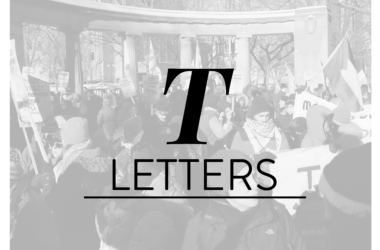Last week, the Labour Tribunal ordered McGill to cease meddling in the activities of the Association of McGill Professors of Law (AMPL), the first faculty union at McGill. This decision, rendered amid a strike that resumed on Aug. 26, garnered national media attention, with many beyond the McGill community expressing confusion and surprise over the administration’s blatant disregard for its legal obligations. However, these actions are neither surprising nor out of character in the context of McGill’s history of administrative abuse of power.
Through this lens, unionization presents an opportunity to reshape the governance structure and, whether intended or not, becomes a matter of accountability. In the eyes of many, McGill’s opposition to unionization appears to be driven by greed, but the stakes are far more complex. Administrators have restructured their roles and accumulated conflicting mandates. They have justified these changes by lining their pockets, blurring the lines between offices, and disguising misconduct along with its far-reaching impact.
The Faculty of Law exemplifies the structural decentralization of a university burdened by administrative abuse of power. Take AMPL’s findings that the Law Faculty Dean’s salary increased by over 65 per cent between 2017 and 2022, while professor salaries increased by only seven per cent in the same period. This figure becomes more concerning considering the Dean’s multivalent role as an administrator, professor, and legal advisor to both the Provost and the President. While these overlapping responsibilities might not seem inherently problematic, they become significant when abuses arise within the Faculty of Law. Despite the establishment of the Office of Mediation and Resolution following longstanding demands and public student advocacy by the Black Law Students’ Association in 2020, the Provost still oversees the final stage of investigations under the Policy on Harassment and Discrimination, extending the conflicts of interest.
Moreover, unlike most universities, McGill’s Equity Team is embedded within the Provost’s office, insulating it from equity oversight. This structure creates a clear conflict of interest, further exacerbated by the fact that the former Associate Provost, responsible for Equity, is also a professor of Law at the university. Despite the increasing number of cases of harassment and discrimination being reported and declared as founded, the position of Associate Provost Equity has been removed from the list of administrators, and unusually, there is no one serving in an acting capacity. This abrupt absence raises serious concerns about the university’s commitment to addressing misconduct, especially at a time when oversight is more crucial than ever after the former Provost Academic Lead and Advisor on the Anti-Black Racism Action Plan stepped down over a year ago, with no replacement since. McGill’s troubling retreat from accountability has only heightened the need for oversight.
In this time of reform and opposition, McGill unions have the opportunity to address critical governance issues by championing structural changes. These include replacing the Associate Provost for Equity with a Vice-President of Equity who reports directly to the President, as called for by the Dr. Kenneth Melville Black Faculty Caucus. Measures must be introduced to avoid conflicts of interest. For instance, the Provost will be removed from harassment and discrimination cases to guarantee independent oversight. The Dean of Law will not be involved as a legal advisor in disputes involving members of his Faculty or anyone he reports to. Greater oversight will be established regarding the influence of donors and the allocation of administrative roles, from Chancellors to Associate Deans. This is particularly important to prevent financial influence from outweighing accountability and student safety. The Black Student Affairs Advisor will be relocated from the Equity Office to the Office of the Dean of Students while formalizing his obligations of confidentiality towards Black students. These changes will promote transparency, fairness, and accountability within the university’s governance structure, making the mobilization efforts for a non-decree-like collective agreement transformative and worthwhile for the entire McGill community. Most importantly, these recommendations serve as a critical reminder to all emerging Faculty unions that, while their mobilization is groundbreaking, they carry the responsibility not to erase an institutional history plagued by abuse, which extends beyond their call for collegiality and solidarity.




